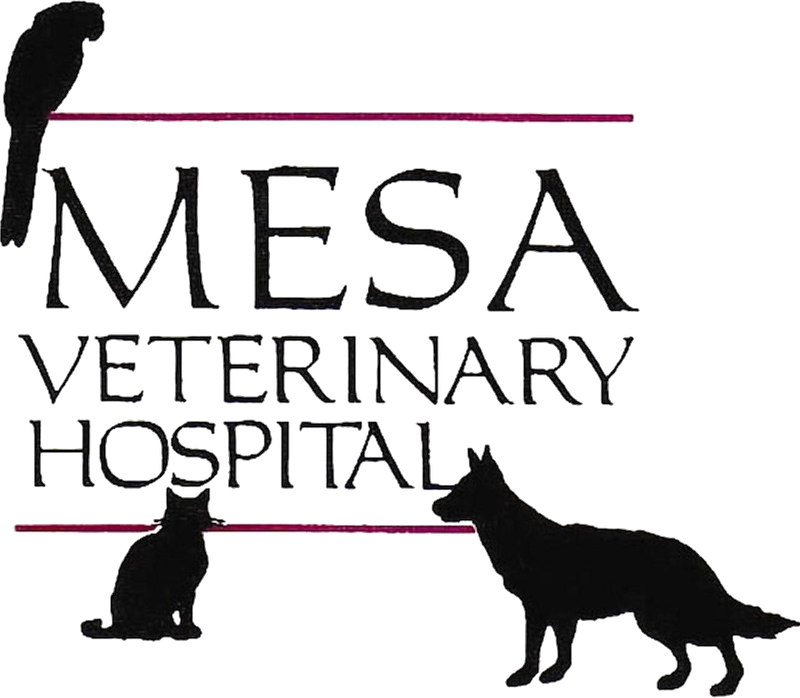February is dental month, and it is just around the corner! Dental health is just as important in your furry pets as it is in you, and we do not tend to think of it nearly as often. During dental month we try to promote and educate owners regarding dental disease. We also have an incentive this month only for a discount off of your final bill if your pet receives a dental prophylactic cleaning.
Periodontal disease is the most common type of dental disease that effects dogs and cats. It starts with plaque formation, which is noticed most obviously during an examination. This then progresses to tartar build-up. It can appear as a thick, tan to brown plaque on your pet’s teeth, and is created by the bacteria in the mouth. This tartar is unsightly, but more importantly it can get underneath your pet’s gums and cause gingivitis. This appears as red, swollen gums and can be uncomfortable for your pet. If there is disease under your pet’s gums, this can eventually affect the support structures, the roots, and the bone surrounding the teeth which can cause tooth root abscesses and loss of the tooth. These abscesses can be very painful, and can generally only be cured by extraction of the tooth. The goal of routine dentals is to do them preventatively, so that we never get so far as to have tooth root abscesses in our pets!
Cats also have a unique form of dental disease called resorptive lesions. This can affect up to 60% of cats. At this point we do not know exactly what causes it, though there are many theories. However, we do know that these lesions cause the teeth to be eaten away and can be very painful. The typical treatment for these teeth is extraction. We do know that preventative care can help prevent development of these lesions in some cases.
The good thing about periodontal disease in our pets is that it can be almost entirely preventable with diligent at home care! There are many options for at home care including dental treats, dental diets, chews, rinses, wipes, and brushing. Brushing is by far the most effective way to prevent periodontal disease and tartar build up in your pet. A pet specific toothpaste should be obtained, and your pet’s teeth should be brushed THREE to FIVE times per week in order for it to help!
However, we do understand that it can be difficult to commit to brushing your pet’s teeth frequently, and some pets do not tolerate it. I have had some cases where owners are very devoted to brushing daily and their pet still develops dental disease. Routine prophylactic dentals are indicated in all pets. Again, the goal of these dentals is to save the teeth so that hopefully we never need extractions! But, we also want to find those problem teeth before they cause your pet discomfort or start to affect the surrounding teeth and bones. In this case, dental radiographs (xrays) are often performed and we may discuss removing the problem tooth. Routine dental care also helps the health of a pet’s entire body!
A dental cleaning requires general anesthesia, so your pet is asleep while his teeth are cleaned. This allows us to adequately clean beneath the gumline and assess for diseased teeth. Anesthesia free dentals exist, but are actually illegal in some states as they do not appropriately clean and address the teeth, and sometimes even harm the teeth. Without anesthesia, dentals are painful for the pet and cannot address disease underneath the gums. Anesthesia is always taken very seriously, and a full physical exam and appropriate bloodwork is performed before the dental cleaning. Your pet is monitored closely by a certified veterinary technician, which includes an electrocardiogram, blood pressure, and oxygenation status.
Also, a quick note on our smaller furry friends. Some of the exotics critters get dental disease as well! I most commonly see ferrets with dental disease, which get similar issues as dogs and cats do. Occasionally I see dental tartar in hedgehogs as well, and gingivitis is common in bearded dragons! Our hindgut fermenters (rabbits, guinea pigs, chinchillas) can get overgrown teeth which can cause ulcerations and pain. During every visit, your pet’s teeth are always assessed!
Please do not hesitate to contact us regarding your pet’s dental health, or call to schedule your pets dental cleaning and health assessment next month!

